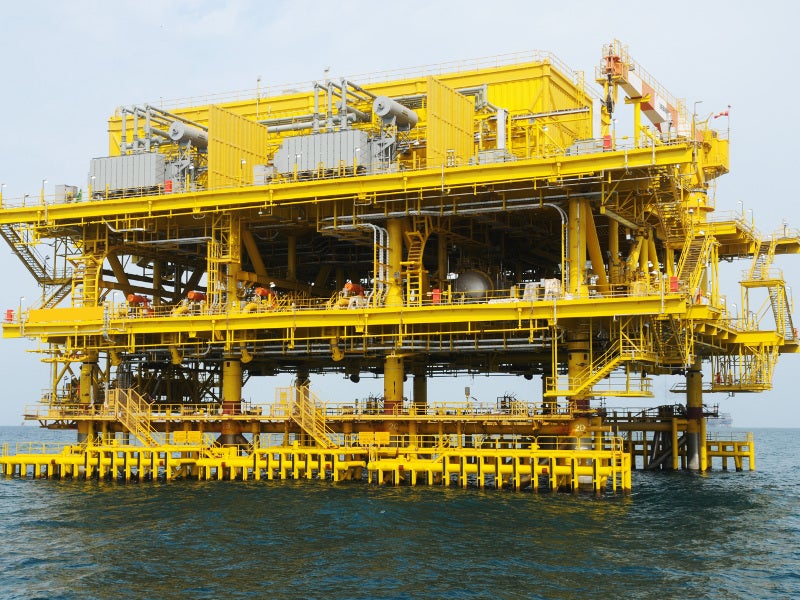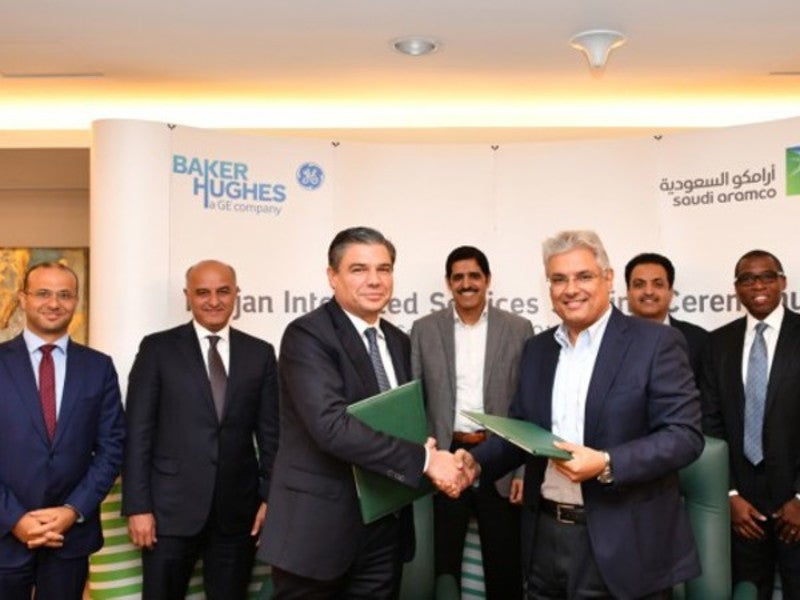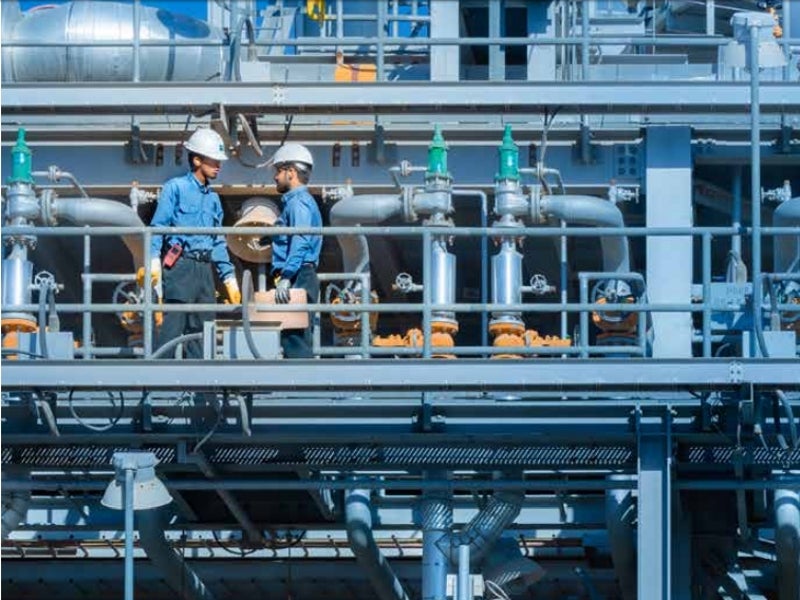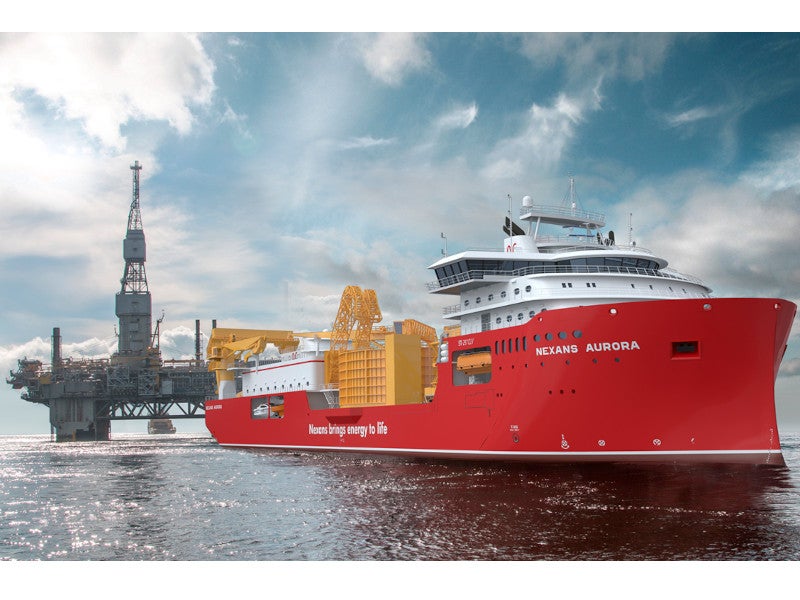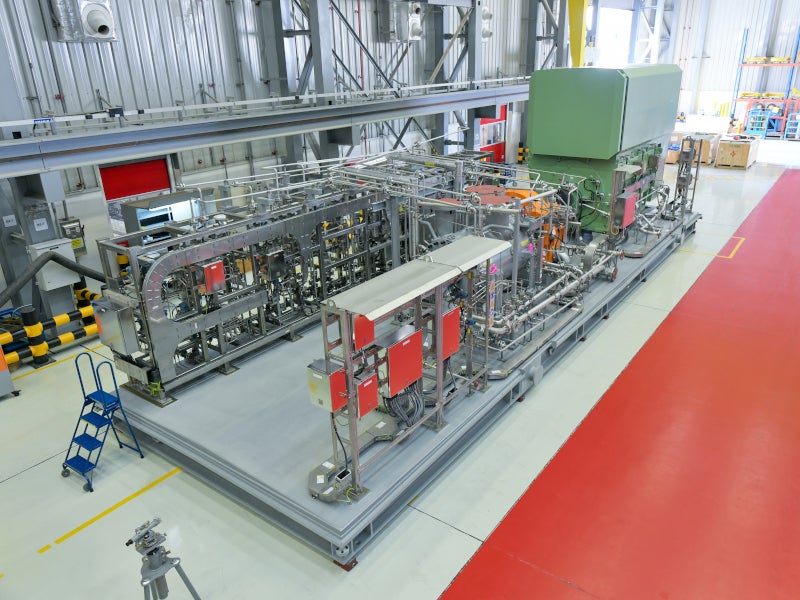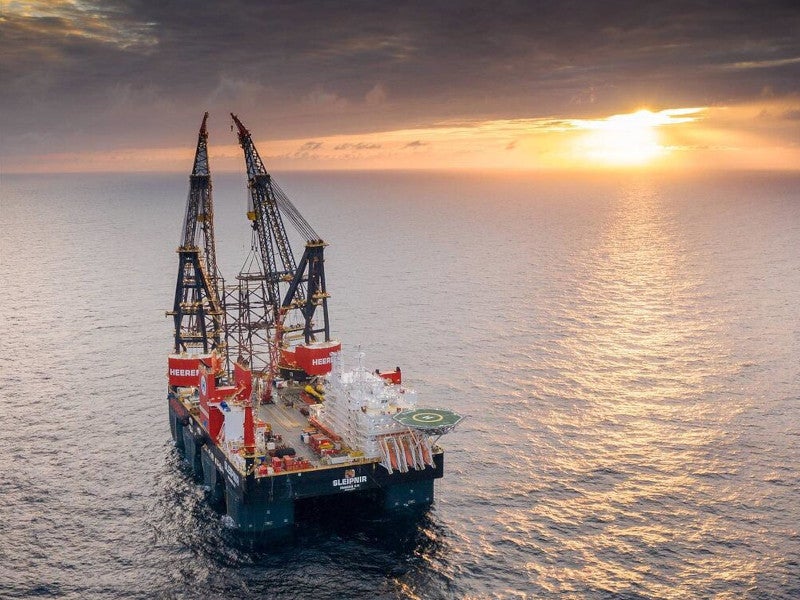The Marjan oil and gas field is located in the Arabian Gulf (also known as the Persian Gulf), off the eastern coast of Saudi Arabia.
Owned and operated by Saudi Arabia’s state-owned oil and gas company Saudi Aramco, the offshore field is being expanded as part of the Marjan Crude Increment Programme.
Announced in 2017, the programme aims to expand the field and increase its crude production capacity by 300,000 barrels per day (bpd) as well as produce 360,000bpd of ethane and natural gas liquids (NGL) by processing an additional 2.5 billion standard cubic feet per day (Bscfd) of gas produced from the field.
The Marjan Crude Increment Programme is being implemented through multiple work packages, with an estimated total investment of $12bn. The offshore work packages are valued at $5bn, while the onshore packages are estimated to be worth up to $7bn.
The expansion project forms part of Saudi Aramco’s $18bn investment programme to boost the production capacity of the Marjan and Berri offshore fields by 550,000bpd of crude oil and 2.5Bscfd of gas.
Following the expansion, the production capacity at the Marjan field is expected to reach 800,000bpd.
Marjan field discovery and infrastructure development
Discovered in 1967, the Marjan field was originally estimated to contain 2.31 billion barrels of recoverable crude oil.
The existing infrastructure facilities for the field include three offshore gas-oil separator plants (GOSPs).
With a production capacity of 100,000bpd of oil and 175 million standard cubic feet a day (Mscfd) of gas, the Marjan GOSP-1 was installed in 1973. The GOSP-2 and GOSP-3 were brought into operation in 1994, bringing the total production capacity of the offshore field to 600,000bpd of oil and 675Msfcd of gas.
The oil and gas produced from the GOSPs are piped onshore to Tanajib for further processing. The onshore control centre at Tanajib also controls the operations at the Marjan oilfield.
Marjan oil field expansion details
The Marjan Crude Increment Programme includes the development of 24 oil, water and gas injection platforms, 200km of cables and an offshore GOSP complex, named Marjan GOSP-4, within 10km of the GOSP-2 and GOSP-3 facilities. Package 1 of the programme will include the installation of six platforms weighing between 4,500t and 6,700t with a maximum footprint of 90m x 52m. They will feature 12 interconnecting bridges and multiple deck levels.
The offshore expansion also includes additional tie-in platforms, production decks, subsea export and infield pipelines, as well as the replacement of the decks on two existing tie-in platforms, the removal of existing gas turbine generators, and the installation of two 115kV subsea power and communication cables.
The onshore element of the project involves the expansion of the Tanajib processing complex with the addition of a gas plant. It also includes a new NGL recovery and fractionation facility along with additional gas compression facilities. The construction of the Tanajib gas plant (TGP) started in 2020 and is expected to be completed in 2025.
Furthermore, the project will also include the development of a water desalination facility and a co-generation facility.
Aramco is using smart helmet technology, which supervises inspection activities and mechanical testing for the project with artificial intelligence.
Contractors involved
In May 2022, Three W Networks Arabia, a subsidiary of Elsewedy Electric, was contracted for the engineering, procurement and construction (EPC) of a Radio Frequency Identification System (RFID) Inventory System for the field’s offshore and onshore expansion as part of package 6.
McDermott was awarded two engineering, procurement, construction and installation (EPCI) contracts for the Marjan field expansion project in July 2019.
The first EPCI contract, valued at $3bn, was for the Marjan GOSP-4 and was awarded to a consortium of McDermott and China Offshore Oil Engineering Company (COOEC).
The second contract, worth $1.5bn, was awarded to just McDermott and included three tie-in platforms, seven wellhead platforms, and the installation of subsea trunk lines and in-field pipelines of a total length of 540km.
Heerema Marine Contractors, an offshore construction and engineering company based in the Netherlands, was subcontracted by McDermott for the installation and transportation of six platform jackets, including piles and boat landings for the project. Heerema will use the H-591 barge for transportation and the Sleipnir semi-submersible crane vessel, with a lifting capacity of 20,000t, for installation activities, which are scheduled to take place in 2023.
Spanish engineering and construction company Técnicas Reunidas was awarded an EPC contract for the project’s new Tanajib gas treatment plant under packages 9 and 11 in July 2019.
Siemens Energy, an energy company based in Germany, was subcontracted by Técnicas Reunidas to provide 21 compressor trains for the project.
UAE-based energy company Lamprell secured two EPCI contracts for the project in 2021. The first EPCI contract, awarded in February 2021, included two offshore production deck modules, pipeline and subsea cables. The second EPCI contract, for three drilling jackets along with two new single well observation decks, was awarded in April of the same year. The contracts were provided as part of a Long-Term Agreement Programme (LTA).
Nexans, a provider of power and data cables based in France, was selected to supply 180km of 230kV HVAC three-core submarine power cables, along with internal fibre optical components, in February 2020. The Nexans Aurora cable vessel will be used for installation activities.
In September 2019, Subsea 7, a subsea engineering and construction company of Subsea 7 Group, was awarded an EPCI contract for the project’s package 2 in collaboration with L&T Hydrocarbon Engineering (LTHE), a subsidiary of Larsen & Toubro. The contract includes new tie-in platforms, production deck manifolds, 217km of fixed pipelines, 145km of power cables and a fibre optic cable installed at water depths of 45m to 52m.
Saipem, an oilfield services company, received an EPCI contract for new gas treatment and sulphur recovery units for the Tanajib onshore processing facility in July 2019.
Saipem had previously been awarded an EPCI contract covering subsea systems for the Marjan oil field expansion, including new platform decks and jackets along with subsea cables and umbilicals, in January 2019.
Petrochemical engineering and construction services provider Sinopec Engineering, a subsidiary of China Petroleum & Chemical Corporation (Sinopec), was contracted for two pipeline projects for the Marjan field expansion in July 2019.
GCS, a general contracting and construction company, was subcontracted by Sinopec to perform site preparation works, as well as utilities and heating, ventilation and air conditioning (HVAC) works.
Hyundai Engineering & Construction, a construction company based in South Korea, was awarded two contracts worth $2.7bn, as part of packages 6 and 7, for expanding the Tanajib onshore processing facility in July 2019.
Technical industrial services provider KAEFER was subcontracted by Hyundai Engineering & Construction to provide insulation, painting and scaffolding services.
WorleyParsons, a provider of professional project and asset services, received the front-end engineering and design (FEED) services contract for the project in July 2017.
John Wood Group was awarded a five-year contract for providing engineering and project management services in February 2018.
Baker Hughes (BHGE) was contracted for drilling and coiled tubing services in September 2018.

